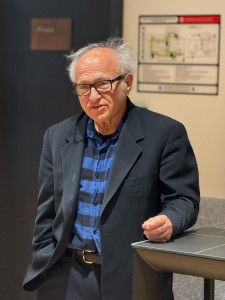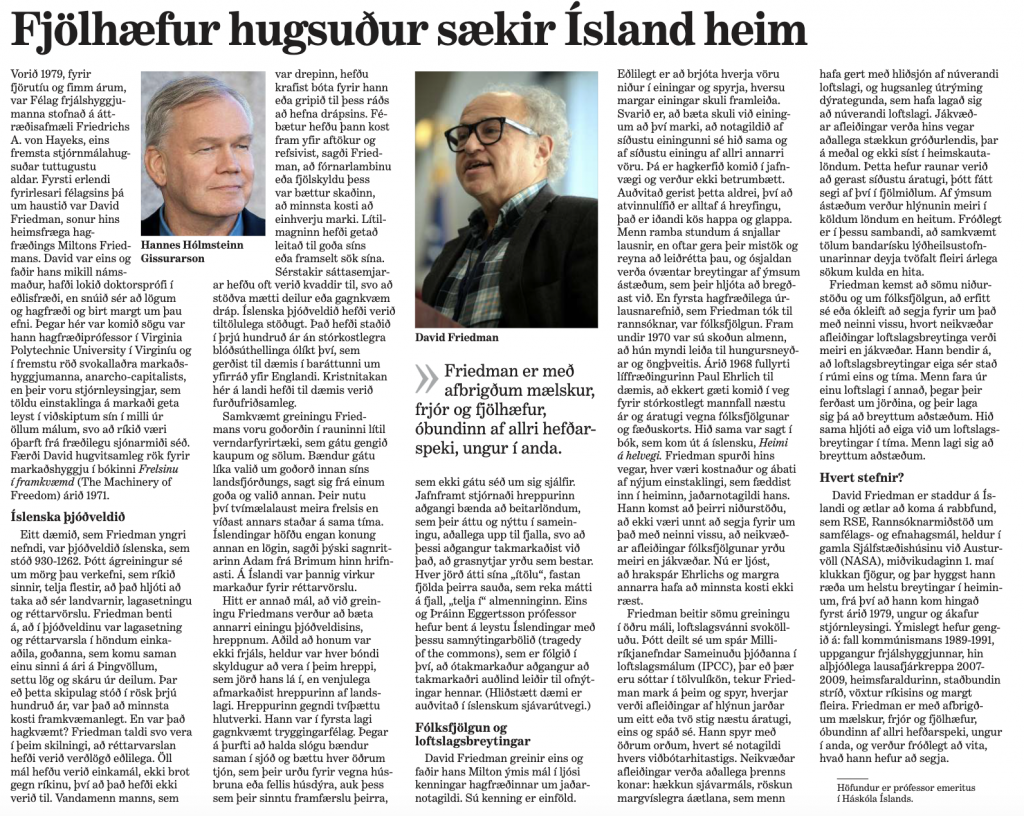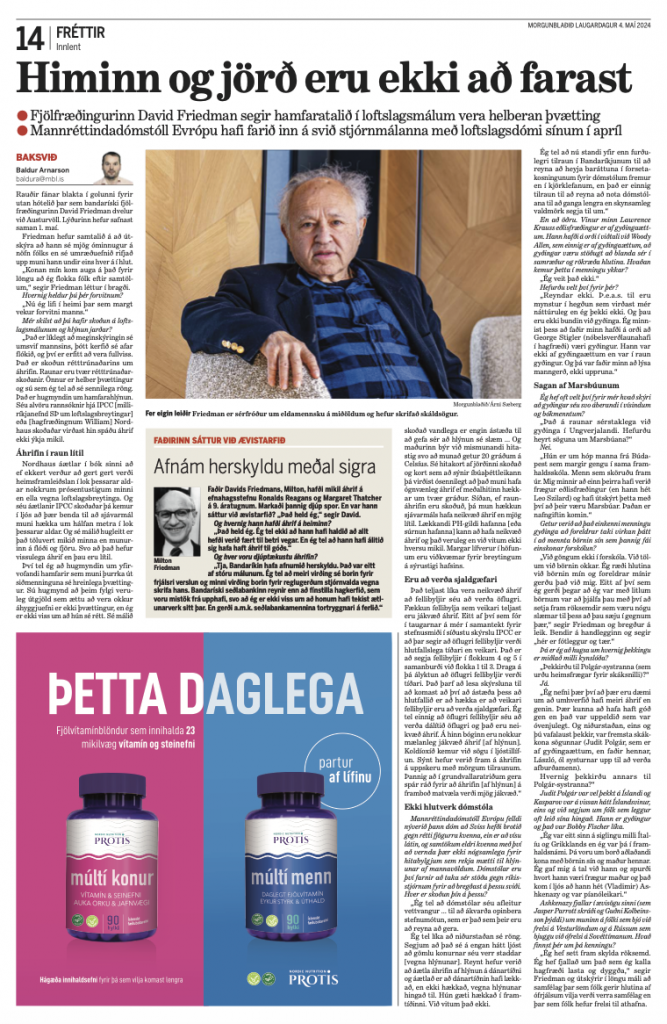 Professor Emeritus David D. Friedman, who used to teach economics at American universities while holding a Ph. D. in physics, gave a talk at a meeting of RSE, the Icelandic Research Centre of Social and Economic Affairs, on Wednesday 1 May 2024. Halldor B. Thorgeirsson, RSE Chairman of the Board, delivered some opening remarks, whereas Hannes H. Gissurarson, Professor Emeritus at the University of Iceland, chaired the meeting. Gissurarson recalled that 45 years ago Friedman had been the first visiting lecturer of the Icelandic Libertarian Association which had been active in 1979-1989. Some of its old members were even attending the present meeting. What Friedman then talked about was law and legislation in the old Icelandic Commonwealth (930–1262).
Professor Emeritus David D. Friedman, who used to teach economics at American universities while holding a Ph. D. in physics, gave a talk at a meeting of RSE, the Icelandic Research Centre of Social and Economic Affairs, on Wednesday 1 May 2024. Halldor B. Thorgeirsson, RSE Chairman of the Board, delivered some opening remarks, whereas Hannes H. Gissurarson, Professor Emeritus at the University of Iceland, chaired the meeting. Gissurarson recalled that 45 years ago Friedman had been the first visiting lecturer of the Icelandic Libertarian Association which had been active in 1979-1989. Some of its old members were even attending the present meeting. What Friedman then talked about was law and legislation in the old Icelandic Commonwealth (930–1262).
In his talk, Friedman first discussed the development of ideas in the 45 years which have passed since his first visit to Iceland. The most important change was that nobody was any more in support of central economic planning, as such support had indeed mostly rested on ignorance about the inevitable dispersal of knowledge in the economic order which made central planning well nigh possible. Now ecofundamentalism had replaced traditional socialism, even becoming a new religion. Subsequently, Friedman turned to global warming. He accepted that there had been some global warming in the last decades and also that it might partly be caused by the emission of greenhouse gases, in particular carbon dioxide. It was uncertain however, Friedman said, that the negative consequences of this warming outweighed the positive ones. The negative consequences were most importantly an increasing sea level and a disruption of individual plans based on the present climate. Moreover, animals and plants that had adapted to the present climate might encounter some difficulties. The positive consequences were however a great increase in arable land. There was also more warming in cold regions than in warm ones and more warming in winter than in summer.
Friedman answered many questions. He said he favoured American non-interventionism in foreign affairs but not immediately because European countries needed time to strengthen their defences because they could not expect American taxpayers to pay for them. Europe should be able to confront Russia on her own. Friedman recalled that in his Machinery of Freedom from 1971 he had supported free immigration, but on the condition that immigrants would not be eligible for welfare benefits for ten years. This was still a relevant idea. Immigrants willing to work were indeed desirable, but not immigrants just seeking benefits. Friedman said that he did not know much about modern Iceland, but that he had great interest in the Icelandic Commonwealth and that he had read a lot of the sagas.
Hannes H. Gissurarson presented Friedman’s ideas in an article in Morgunbladid on 30 April 2024.
 Friedman discussed his ideas in the podcasts of popular hosts Snorri Másson and Gisli Freyr Valdorsson. He was also interviewed by reporter Baldur Arnarson in Morgunbladid.
Friedman discussed his ideas in the podcasts of popular hosts Snorri Másson and Gisli Freyr Valdorsson. He was also interviewed by reporter Baldur Arnarson in Morgunbladid.
On Friedman’s home page there is a lot of material about his many interests.



